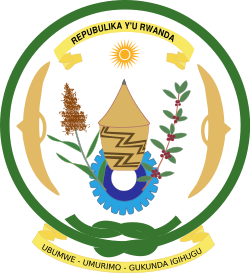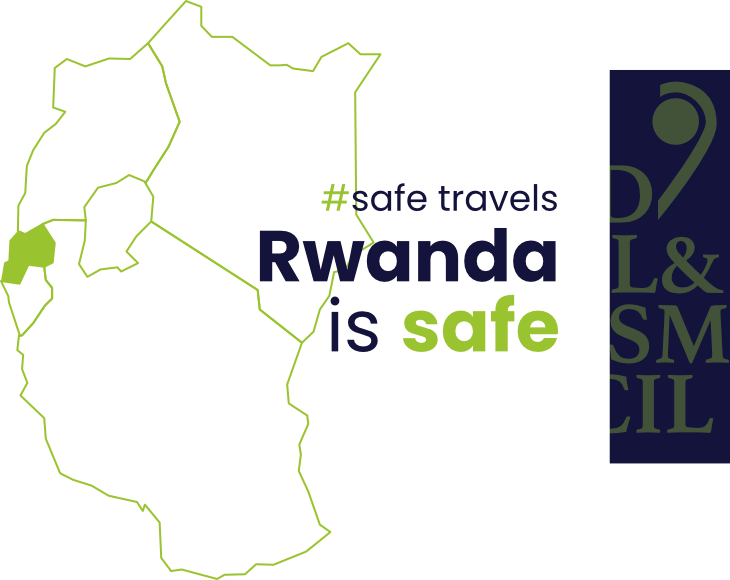
Republic of
RWANDA
Rwanda is known as the “Land of a Thousand Hills,” Rwanda is the fertile and friendly red-soiled Tibet of Africa, famous for its lush scenery, rich history, coffee and tea plantations, and its beautiful lakes. Gorilla trekking is definitely one of the pinnacle wildlife experiences on earth and well worth the trip to Rwanda for that reason alone.

Akagera National Park
Best Time: July - OctoberClimate: 21 - 31 °c
Size: 1,120 sq. km.
Hugging Rwanda’s eastern border with Tanzania, Akagera National Park covers about 1,120km² and is one of Africa’s oldest national parks, first gazetted in 1934.
The north of Akagera is mostly fairly low-lying grasslands and savannah plains, similar in feel to the 'traditional' safari areas of East Africa. To the west are rolling hills and valleys more typical of Rwandan countryside while to the east, the Akagera River feeds into a series of lakes, marshes and papyrus swamps that constitute central and eastern Africa’s largest protected wetlands. So, for a fairly small National Park, an Akagera safari can be extremely diverse with a variety of habitats, wildlife and birds, and some lovely scenery.

Lake Kivu
Best Time: August - OctoberClimate: 22 - 30 °c
Size: - sq. km.
Rwanda's western side is bounded by Lake Kivu, one of a string of huge freshwater lakes, which lie along Africa's Great Rift Valley. Dominating the border between Rwanda and the DRC (Democratic Republic of Congo); Lake Kivu is Rwanda’s largest lake, and the sixth largest lake in Africa.
The Volcanoes National Park (Parc des Volcans) was made famous by Dian Fossey's work, and the film Gorillas in the Mist. Along with an array of other endangered species, more than half of the world's last mountain gorillas live here. At present, it's probably the best place in Africa to see them.
The real joy of this area is driving between the towns, and it’s a lovely option for a slower route between Nyungwe Forest National Park and Volcanoes National Park. The road gently curves back and forth as it weaves through hills and mountains beside the lake from Gisenyi all the way to Cyangugu, with Kibuye almost at its Centre point. Every corner produces another gorgeous view. Eucalyptus trees line the road, while every inch of the hills seems to be terraced with bananas. Villagers smile and wave, and children constantly call out “Abuzungu!" as you drive past (the Kinyarwanda term for white people, like “Muzungu" in Swahili). You'll end up with hands tired from waving, and feel like royalty at the end of the trip!

Nyungwe Forest National Park
Best Time: July - OctoberClimate: 15 - 27 °c
Size: 1,020 sq. km.
In the southwest corner of Rwanda, Nyungwe Forest National Park is a vast untouched tropical rainforest with a high, dense canopy. Nyungwe became a National Park in 2004 as Rwanda sought to increase its tourism beyond the country’s mountain gorillas of Volcanoes National Park, and is certainly worthy of its status because of its spectacular biodiversity.
The heart of Nyungwe Forest is like a scene from a fairy tale. Tall old mahoganies, ebonies and giant tree ferns tower above you, whilst orchids and other epiphytes cling to every branch. Brightly coloured birds flit around, butterflies are everywhere, and walking quietly you may even encounter larger forest residents, including a variety of primates for which Nyungwe National Park is renowned.
To get a real sense of the scale of Nyungwe, try East Africa’s highest canopy walk with a metal bridge suspended 50 metres above the forest. It’s not for the vertiginous but the views of Nyungwe sprawled out below are unforgettable.
Spreading over 1,020km², Nyungwe Forest National Park includes the largest swathe of remaining montane forest in East or Central Africa. It harbours about 310 different bird species, hundreds of butterflies and orchids, and over 75 different species of mammals – including 13 primates (about a quarter of all Africa's primates).

Volcanoes National Park
Best Time: June - OctoberClimate: 16 - 27 °c
Size: - sq. km.
The most famous destination in Rwanda, Volcanoes National Park has become synonymous with mountain gorilla tracking safaris and no visit to the country would be complete without visiting these majestic primates.
Volcanoes National Park is the Rwandan section of the great volcanic massif called the Virunga Mountains that straddles the borders of Rwanda, Uganda and the DRC. The massif covers a huge area of over 8,000km², encompassing six active and three extinct volcanoes. Gorillas, of course, pay no heed to borders and are known to cross between the countries, although most habituated groups are to be found in Volcanoes National Park. The massif is home to around half of the world's precious mountain gorillas – some 400 of them – making Rwanda probably the best place in Africa for a tracking safari.
Volcanoes National Park also has a historic connection with gorilla conservation. It was the base for the ground-breaking work of primatologist Dian Fossey that started in the late 1960s and is evocatively portrayed in the book and film Gorillas in the Mist.

Kigali city
Best Time: May - NovemberClimate: 16 - 27 °c
Size: - sq. km.
Rwanda is a small country, with its modern capital, Kigali, at the centre. From here the roads radiate outwards, like the spokes of a wheel, and hence on most Rwanda holidays you'll occasionally spend a night here as part of any itinerary. It’s a pleasant city scattered over several hills with enough to do to keep visitors occupied for a couple of days, easy to walk around with plenty of bars, cafes and restaurants for sustenance.
One of the first things most people notice is that, particularly for an African city, Kigali is spotlessly clean, partly because plastic bags are banned in the country but also because of a universal service called Umuganda when everyone gets together on the last Saturday morning of each month working on community projects like keeping streets clean, tending to gardens and helping neighbours. Do bear this in mind should you be on holiday in Rwanda during this time – many shops and businesses will be closed for the morning.
Kigali has relatively few tourists but those that take the time to explore the city are rewarded by a friendly response from locals and a more rounded insight into the country as a whole.








